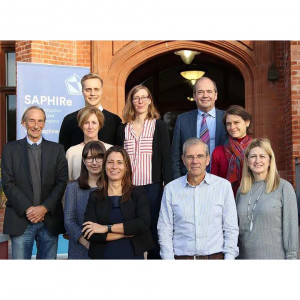 \
&
Contact us
\
&
Contact us
 \
&
Contact us
\
&
Contact us
Published on | 7 months ago
Programmes MSCAThere is 1 attachment connected to this article.
Attachments are only accessible for people with an account on the NCP Flanders website.
The evaluation results of the Marie Sklodowska-Curie Actions (MSCA) Doctoral Networks (DN) 2024 call (deadline 27 November 2024) were announced (see this article). A budget of €608.6 million is available. A total of 1417 proposals were submitted for the call, 1249 for Doctoral Networks standard, 80 for Industrial Doctorates and 88 for Joint Doctorates. 149 proposals were retained for funding, of which 133 for Doctoral Networks standard, 8 for Industrial Doctorates and 8 for Joint Doctorates. The success rate for this call is 10.9%. More information on the evaluation procedure can be found in the HE MSCA 2023-2025 work programme, under section 1.5 procedure (p. 114-117)
More information on the results of the call can be found in several resources published on the call topic page for HORIZON MSCA 2024 DN (under topic updates) on the European Commission Funding & Tender portal:
The proposals that were selected for funding with a coordinating organisation in Flanders can be found in the attached file.
We offer news and event updates, covering all domains and topics of Horizon Europe, Digital Europe & EDF (and occasionally, for ongoing projects, Horizon 2020).
Stay informed about what matters to you.
By signing up, you can opt in for e-mail notifications and get access to
a personalised dashboard that groups all news updates and event announcements in your domain(s).
Only for stakeholders located in Flanders

The Department of Economy, Science and Innovation of the Flemish government coordinates the Horizon 2020 Coordination and Support Action SAPHIRe, which started on 1 December 2018. The aim of the project is to secure the adoption of personalised medicine in all European regions, including sparsely populated and remote regions and regions with different innovation capacities.
The activities of SAPHIRe are complementary to the smart specialisation partnership on personalised medicine – S3P4PM, which is also coordinated by the Department of Economy, Science and Innovation.